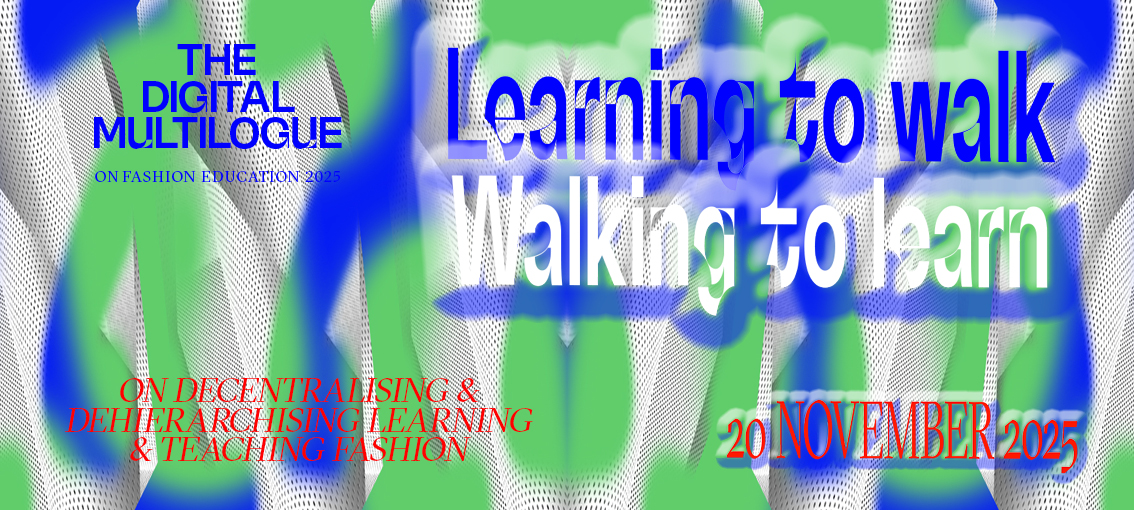

Where do we learn fashion?
In our grandmother’s lap,
in the street, the club,
the market,
everywhere.
Professional fashion learning used to take place in workshops and studios, ateliers and factories. It still does.
Yet, from the 19th century it also moved into colleges and universities.
Fashion education became increasingly specialized, institutionalized and intellectualized.
As a result, we see a dualism between informal and professional fashion learning, and between vocational and tertiary education. One seems more valid than the other. One seems more worth than the other. There are severe hierarchies within fashion education that mirror and codetermine those in the professional field. Hierarchies between sites of learning, qualifications, the value of professions, the value of subsequent work, between intellectual and manual labour, between the worth of human beings and human lives. Global hierarchies and local hierarchies.
Fashion education has increasingly become inaccessible. Increasingly distinctive, discriminatory, disembodied – disconnected from the everyday.
‘Let us walk […] and envision the learning environment as an emergent and adaptable opportunity for connection and wonder.’
Let us explore walking for learning. Walking, the free and open activity we all do every day – if not in body, then in mind. Walking, not as a neutral activity, equally determined by gender, class, race, physical ability, but walking as a call to action.
Together let us explore walking to decentralize and dehierarchise fashion learning.
‘In an era of complex social and political issues
Springgray, Stephanie & Truman, Sarah E. (2019) ‘Walking in/as Publics: Editors Introduction’
in: Journal of Public Pedagogies. No. 4, p. 2
Walking to unlearn. Walking to learn.
‘You’ll never walk alone’
Gerry and the Pacemakers, 1963
Fashion education has increasingly become inaccessible. Increasingly distinctive, discriminatory, disembodied – disconnected from the everyday.
‘Let us walk […] and envision the learning environment as an emergent and adaptable opportunity for connection and wonder.’
Beavington, Lee (2021) ‘Walking Pedagogy for Science Education and More-Than-Human Connection’ in: Journal of the Canadian Association for Curriculum Studies (JCACS). Vol. 18, No. 2, p. 163.
Let us explore walking for learning. Walking, the free and open activity we all do every day – if not in body, then in mind. Walking, not as a neutral activity, equally determined by gender, class, race, physical ability, but walking as a call to action.
Together let us explore walking to decentralize and dehierarchise fashion learning.
‘In an era of complex social and political issues
– such as climate change, capitalism, and forced migration,
to name a few – there is an increasing demand for public and
community action. Further, academics continue to grapple with
ways to present research findings to non-academic audiences, while marginalized and oppressed people take up ways to transform and decolonize social and political space and institutions. To this end, walking is an ethical and political call to action.’
Springgray, Stephanie & Truman, Sarah E. (2019) ‘Walking in/as Publics: Editors Introduction’in: Journal of Public Pedagogies. No. 4, p. 2
Walking to unlearn. Walking to learn.
Walking to wonder.
Walking together.
‘You’ll never walk alone’
Gerry and the Pacemakers, 1963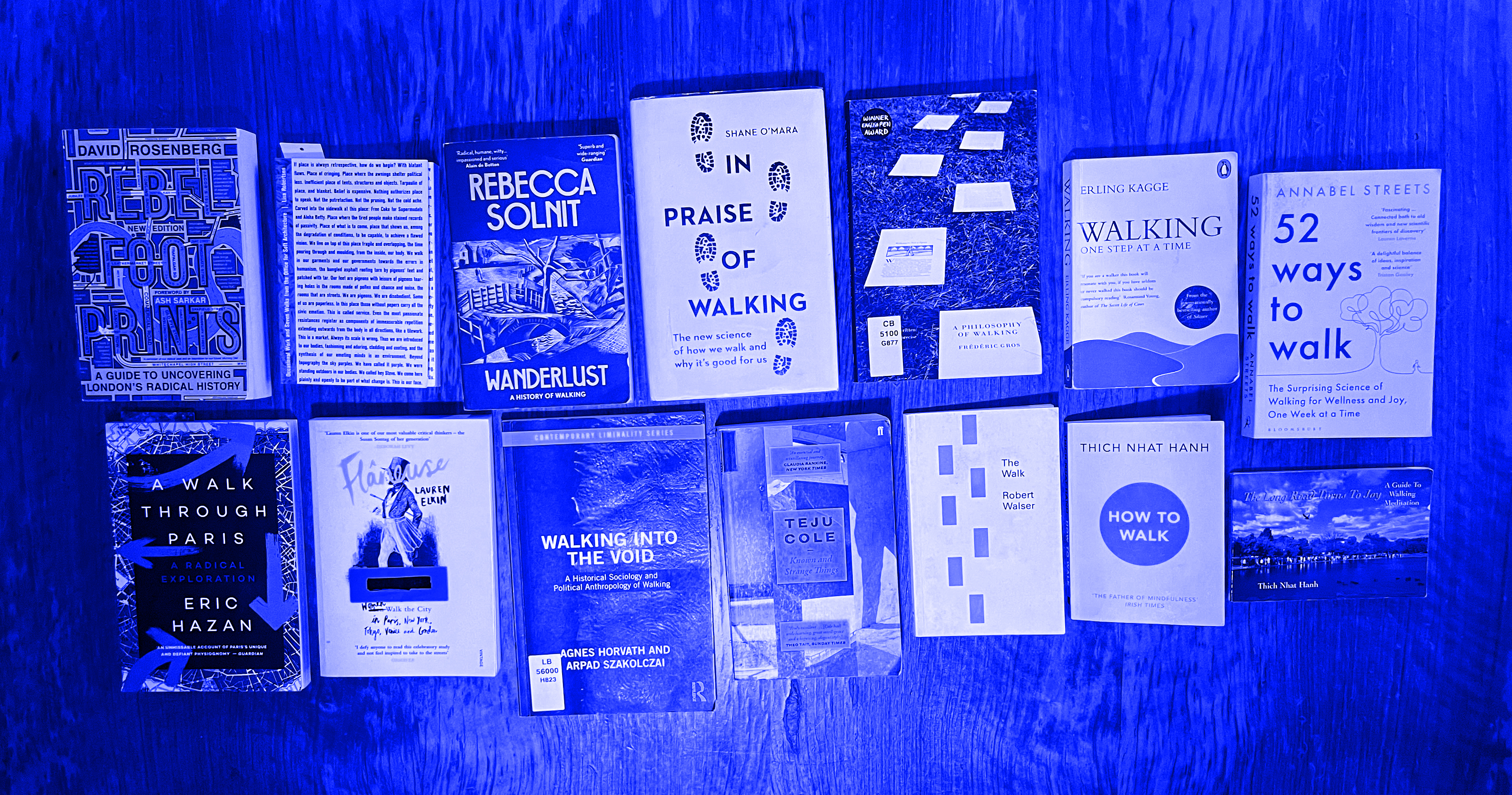
Interested in further readings?
Visit the Learning to Walk / Walking to Learn – sources & resources online readling list
Session 1
9-12 am (CET) WALKING OUT
de-centralizing & de-hierarchizing learningA Walking Provocation
by

Sharanya Murali (UK) ‘Seeing Slant: Walking as a Relational Practice’
THE CONVERSATION
on
Walking Out
–decentralising and de-hierarchising walking
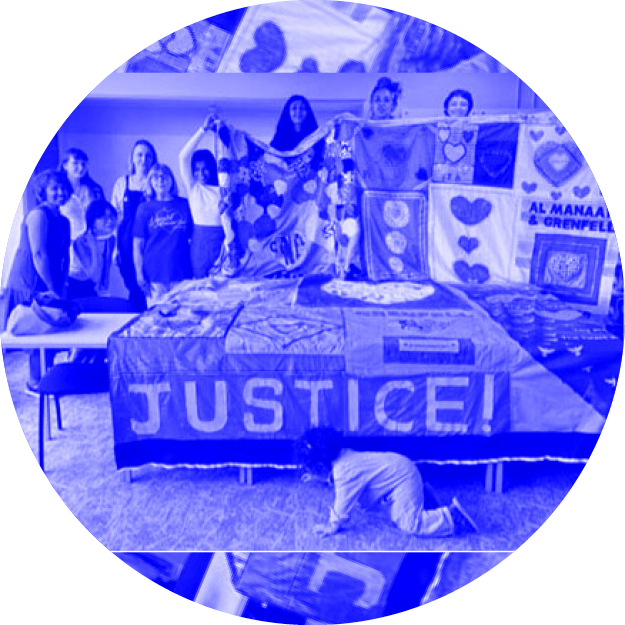


with
Tanveer Ahmed
Chris Steyaert
Jennifer Whitty
facilitated by
Tanveer Ahmed
&
A WALKSHOP
Walking Action
3-4pm CET (11am-12 CET)in Salvador, Brazil at the crossroad of Negra Jho's Afro hairstyle, R. Alaíde do Feijão, 10 - Pelourinho, Salvador - BA

with
Mi Medrado
 featuring
featuring Magdiel Baruq and his performance
‘Suddenly, the fall of the foliage | Performance - Repente, o tombo da folhagem’
on the occasion of
Black Consciousness Day and during
COP30
organized by the Research Centre for Social Sciences in Fashion (CiSoM) at the Federal University of Bahia. Supported by Negra Jho's Afro hairstyle & Anunciação Artes Visuais
Session 2
5-8 pm (CET)WALKING WITH
embodied & experiential learningA Walking Provocation
by
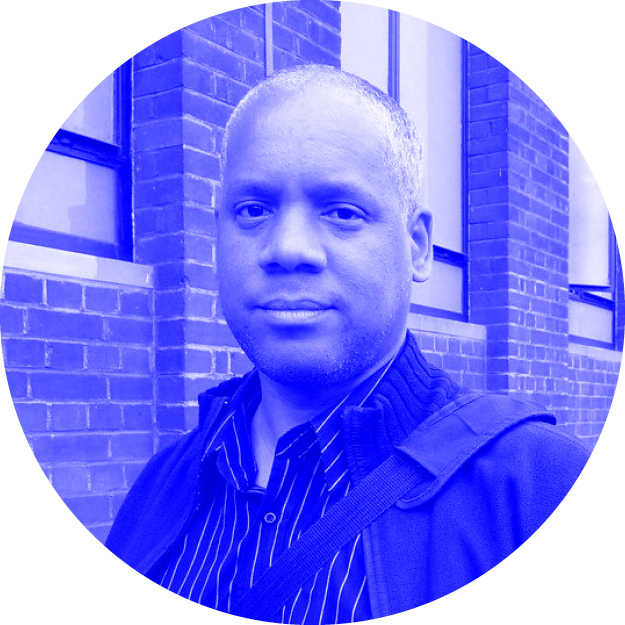
Tony Warner
'Footsteps to the Future from Walking in the Past'
THE CONVERSATION
on
Walking With
– embodied and experiential learning

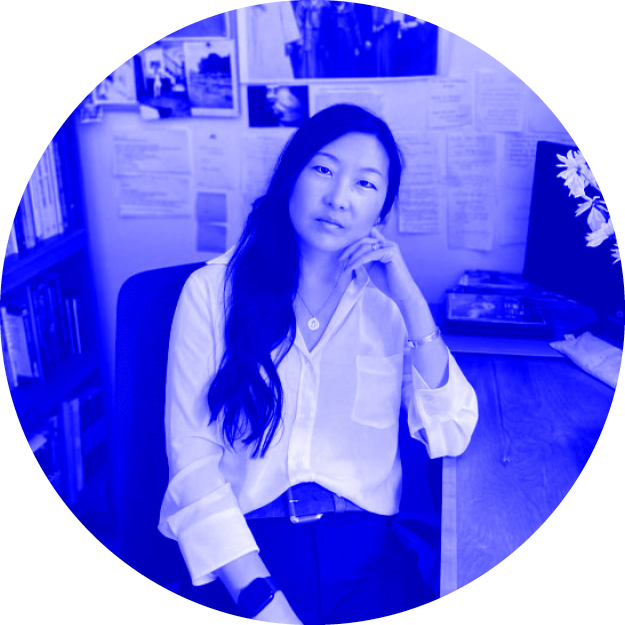

with
Mi Medrado
Christina Moon
Tony Warner
facilitated by
Christina Moon
&
A WALKSHOP


TANVEER AHMED (she/her) is a London based educator teaching fashion design practice, theories and histories at Central Saint Martins, University of the Arts London. Tanveer’s research explores alternative justice-oriented forms of fashion design by centring plural fashion narratives inspired by anti-colonial concepts of fashion. Tanveer’s PhD titled 'Pluriversal Fashions: Towards an Anti-Racist Fashion Design Pedagogy' investigated how white normativity works to racially hierarchise fashion design epistemologies and used alternative decolonial feminist frameworks to counter dominant exclusionary definitions of fashion design. Tanveer is working on a book ‘Fashion and Anti-Racism’ (Bloomsbury forthcoming)

MI MEDRADO is an Anthropologist and editor who focuses on the cultural-economic circuits of fashion and media in the Global South: Brazil, Angola, and the United States. She has lectured in universities across Africa, Latin America, and Europe, where she is also part of academic collectives. She is a Ph.D. candidate at the Federal University of Bahia with a doctoral stay at Agostinho Neto University, Angola. Medrado holds a Master’s in Arts and is a Ph.D. student at the University of California, Los Angeles. As her practice-based fashion education and research aim to foster knowledge pluriversality, Medrado is experimenting with ways to innovate fashion knowledge production in the Global South, such as engaging with decolonial fashion walks in Pelourinho, Salvador, Bahia, Brazil.

CHRISTINA MOON is a scholar of fashion studies and anthropology at Parsons School of Design in New York. She has previously written on labor and creativity in the global fashion industry. She is currently working on a book on the wardrobe as study and story—a meditation on clothing as the archive to interior lives.

SHARANYA MURALI is Senior Lecturer in Theatre at Brunel University of London. Her work has previously appeared in Contemporary Theatre Review, Theatre Research International, Performance Research, Wasafiri and other publications. In 2021, she was an invited Scholar at the Mellon School of Theatre and Performance Research at Harvard University. She is currently writing a monograph on the politics of labour and Indian feminist visual art.

CHRIS STEYAERT is Professor for Organizational Psychology at the University of Sankt Gallen where he researches and teaches organization psychology, team dynamics and (urban) creativity. His current research interests concern multiplicity (diversity), creativity and reflexivity in organizing change, intervention and entrepreneurship. In particular, he examines creative and diverse organizing processes in the creative industries from practice-based, affective and queer-theoretical perspectives, ranging between dance companies, and fashion to museums and opera. Furthermore, in his classes, he experiments with innovative pedagogical forms such as, walking and embodied performance, drama and dance, dialogue and simulation, film and (digital) exhibition. Chris is regularly invited to speak on “creativity and experimentation in higher education” at universities in Switzerland and abroad.

TONY WARNER set up Black History Walks in 2007. BHW explores 2000 years of African/Caribbean history in London via 21 guided walks, bus tours, river cruises, canal cruises, steam train trips and helicopter tours; plus talks, films and courses.
Tony is an author on the pioneering ‘Pearson GCSE History Migrants in Britain exam textbook. It features Black British Civil Rights and is based on his Notting Hill walk. It's now used by 15,000 pupils in 140 schools He is also the author of 'Black History Walks in London Volume 1' the first book to detail African/Caribbean history in London's streets. He is the co-founder of the African Odysseys programme which shows African diaspora films on a monthly basis in London cinemas for the last 18 years and he has sponsored 10 historic blue plaques to recognise Black achievers.
Tony is an author on the pioneering ‘Pearson GCSE History Migrants in Britain exam textbook. It features Black British Civil Rights and is based on his Notting Hill walk. It's now used by 15,000 pupils in 140 schools He is also the author of 'Black History Walks in London Volume 1' the first book to detail African/Caribbean history in London's streets. He is the co-founder of the African Odysseys programme which shows African diaspora films on a monthly basis in London cinemas for the last 18 years and he has sponsored 10 historic blue plaques to recognise Black achievers.

JENNIFER WHITTY is a sustainable systems design researcher, educator, consultant and designer whose work advances decolonial approaches to fashion and design. A White-Irish woman and third culture person with whakapapa (genealogy) tracing to the Muintir na hÉireann, the native people of Ireland, she seeks to uncover universal truths and commonalities across cultures, tapping into diverse worldviews to explore how creative practice can reimagine everyday life for social and environmental justice. Her teaching, research, and consulting cultivate relational, regenerative, and plural design systems. Jennifer has worked internationally across the USA, Europe, Asia, and Australasia with clients including Conde Nast, FutureLearn, and the United Nations. Based between Aotearoa New Zealand, Ireland, and China, she holds several academic roles including Senior Lecturer at Auckland University of Technology (AUT) and Visiting Professor at Xi’an Polytechnic University.

What is the Digital Multilogue on Fashion Education anyway?
The Digital Multilogue on Fashion Education wants to create connections and actions within and across different fashion learning cultures and contexts. It was founded in 2019 as a participatory and outcome-oriented space and a series of conferences focused on the learning and teaching of fashion. It aims to explore and illustrate the diversity and complexity of the field and the practices of fashion education, and to foster a greater understanding of its pasts, presents and futures – methods, values and didactic, pedagogic and epistemological questions – creating a global exchange to inspire mutual learning, collaborative research and shared action.
When is the next Multilogue taking place?
30 September 2026. Please save the date.
The Digital Multilogue on Fashion Education wants to create connections and actions within and across different fashion learning cultures and contexts. It was founded in 2019 as a participatory and outcome-oriented space and a series of conferences focused on the learning and teaching of fashion. It aims to explore and illustrate the diversity and complexity of the field and the practices of fashion education, and to foster a greater understanding of its pasts, presents and futures – methods, values and didactic, pedagogic and epistemological questions – creating a global exchange to inspire mutual learning, collaborative research and shared action.
When is the next Multilogue taking place?
30 September 2026. Please save the date.
What is it about and why?
The two-part edition of The Digital Multilogue on Fashion Education 2025/2026 is about: Learning to Walk, Walking to Learn.
Where is it happening: online / hybrid / in-person?
People are called to come together online to connect with global fashion learning communities. Anyway, everyone is invited to meet locally with friends and peers, joining the global community online.
Who could participate?
Everyone. The Multilogues are always open-access and free for all. As should all education be! And, as Everyone is a fashion learner.
I have more questions, who can I ask?
Please don’t hesitate to contact us on:
multilogue@fashioneducation.org
The two-part edition of The Digital Multilogue on Fashion Education 2025/2026 is about: Learning to Walk, Walking to Learn.
Where is it happening: online / hybrid / in-person?
People are called to come together online to connect with global fashion learning communities. Anyway, everyone is invited to meet locally with friends and peers, joining the global community online.
Who could participate?
Everyone. The Multilogues are always open-access and free for all. As should all education be! And, as Everyone is a fashion learner.
I have more questions, who can I ask?
Please don’t hesitate to contact us on:
multilogue@fashioneducation.org




